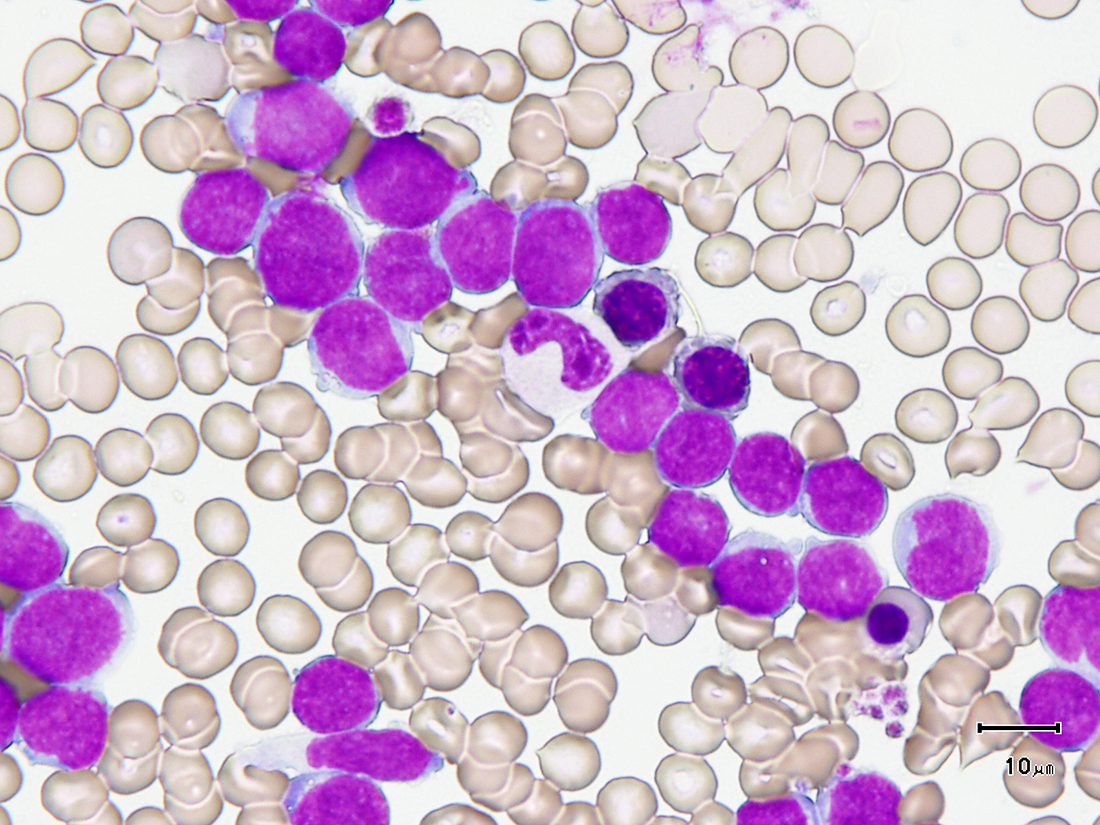
An experimental chemotherapy kills leukemia cells that are abundant in proteins critical to cancer growth, according to new research from Weill Cornell Medicine. The findings may offer scientists a new biomarker to discern which patients with an aggressive form of the blood cancer will — or will not — respond to the treatment.
In the study, published Nov. 25 in Cell Reports, the investigators focused on a drug developed by Dr. Gabriela Chiosis at Memorial Sloan Kettering Cancer Center called PU-H71. The drug targets a tumor-enriched form of the protein Hsp90 called teHSP90, which is critical to the growth of cancer cells and without which the cells cannot survive. However, earlier tests in acute myeloid leukemia, an aggressive cancer in which the bone marrow makes abnormal blood cells, conducted in Petri dishes and in mice, had shown that PU-H71 only killed some leukemia cells.
